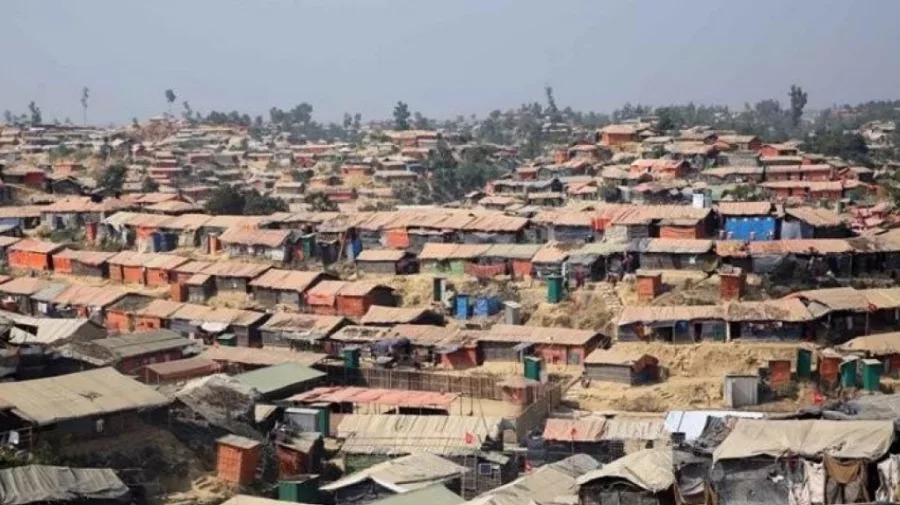Plight of one million Rohingya refugees largely ignored: Human Rights Watch

![]()
News Desk
Human Rights Watch emphasized that one million Rohingya refugees in Bangladesh continue to live with little hope of safe return six years after the Myanmar military initiated a campaign of mass atrocities in Rakhine State on August 25, 2017.
The United Nations Security Council’s lack of action has allowed Myanmar’s military leaders to evade accountability for their acts of genocide and crimes against humanity committed against the Rohingya population.
More than 700,000 Rohingya refugees have arrived from Myanmar in Bangladesh’s Cox’s Bazar districts since August 2017. They’ve joined hundreds of thousands already living in refugee camps or with local communities.
An additional 600,000 Rohingya are trapped in Myanmar under the control of the junta authorities, subjected to an apartheid-like system.
Shayna Bauchner, Asia researcher at Human Rights Watch, said, “Rohingya on both sides of the Myanmar-Bangladesh border are trapped in stateless purgatory, denied their most basic rights, awaiting justice and the chance to go home.”
Bauchner criticized the inaction of the UN Security Council and the reduction of government aid, exacerbating the Rohingya’s dire circumstances.
To address this crisis, HRW calls for increased funding, pressure on governments, and the creation of conditions for safe and dignified returns. The UN and concerned governments should take meaningful action, including arms embargoes, referrals to the ICC, and targeted sanctions, to ensure justice and civilian rule in Myanmar.
The coup in Myanmar on February 1, 2021, led to the arrest of numerous Rohingya by security forces for “unauthorized travel,” coupled with new movement constraints and aid limitations imposed on Rohingya camps and villages.
The junta’s systematic abuses against the Rohingya constitute crimes against humanity, including apartheid, persecution, and deprivation of liberty.
Moreover, the junta’s denial of vital humanitarian aid, even months after Cyclone Mocha’s devastation in Rakhine State, further exacerbates the situation.
HRW also criticized Dhaka for authorities’ failure to ensure protection, security, or the prosecution of perpetrators amid the escalating violence by armed groups and criminal gangs in the camps.
According to HRW, the refugee community faces a sense of despair due to the prolonged refugee status, restricted access to education and work, and ongoing violence. The education gap within the Rohingya community is widening, hindering skill and knowledge development.
The funding gap of the 2023 UN Joint Response Plan for the Rohingya crisis has led to a reduction in food rations provided by the World Food Programme (WFP).
This cutback, from $12 to $8 per month since February, has increased malnutrition, disease, and desperation among the refugees. Donors and governments are urged to increase funding, pressuring Bangladesh to reverse its restrictions and offering more resettlement opportunities for the Rohingya.
However, prospects for voluntary returns have diminished since Myanmar’s military coup in 2021, which was orchestrated by the same generals responsible for the 2017 mass atrocities.
The repatriation efforts initiated by Bangladesh authorities in collaboration with Myanmar junta authorities have been marked by coercion and deceit.
The UN and concerned governments should underscore that the conditions necessary for the secure, sustainable, and dignified return of Rohingya refugees are absent.
The international response to the 2017 atrocities has been insufficient, with the UN Security Council’s actions limited to issuing statements. Concrete measures are urged, including a global arms embargo, ICC referral, and targeted sanctions on junta leaders.
Bauchner remarked that repatriating Rohingya refugees now would expose them to a ruthless junta, increasing the likelihood of another devastating exodus.
Building the conditions for their safe return necessitates coordinated international action to establish civilian rule in Myanmar that respects rights and achieves justice for past atrocities.